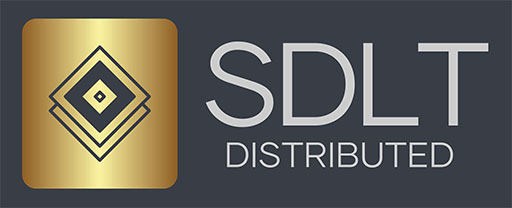L
- The Blockchain IV Act modernizes Luxembourg’s financial landscape by utilizing distributed ledger technology for securities management.
- Securities will shift from physical certificates to electronic records, streamlining transactions and enhancing security.
- The Control Agent Model replaces traditional central account keepers, allowing for multiple custodians and increased transparency.
- By prioritizing investor protection and innovation, Luxembourg aims to establish itself as a leader in digital finance in the EU.
- This legislation marks a continuation of Luxembourg’s history of legal innovation in finance, dating back to 2019.
- The act is expected to create a more efficient and adaptable financial framework that fosters innovation.
Luxembourg just made waves in the financial world with the launch of the pioneering Blockchain IV Act—a bold move to modernize its financial landscape! This groundbreaking legislation, enacted on December 20, 2024, is set to reshape the way securities are issued and managed by incorporating cutting-edge distributed ledger technology (DLT).
Say goodbye to clunky physical stock certificates! Under this new law, securities will now exist as sleek electronic records, streamlining transactions and enhancing security. This revolutionary process eliminates the old ways of trading through physical exchange, opting instead for swift electronic transfers.
At the heart of this transformation is the Control Agent Model, a fresh approach that replaces the traditional central account keeper with a versatile control agent. This agent oversees the issuance of dematerialized securities while ensuring flexibility and safety for both issuers and investors. Unlike conventional systems, this model allows multiple custodians to manage securities accounts, adding layers of transparency and adaptation.
Luxembourg isn’t just keeping pace; it’s leading the charge in the integration of DLT into finance. This act builds on a legacy of legal innovation dating back to 2019, signaling the country’s commitment to a modernized and efficient financial sector. By prioritizing investor protection and competitive advantages, Luxembourg is positioning itself as a pioneer in digital finance within the European Union.
In a rapidly evolving market, Luxembourg’s visionary steps promise to create a more secure, efficient, and adaptable financial framework—one that encourages innovation while safeguarding investors. Don’t miss out on these exciting developments that are set to redefine how we think about finance!
Luxembourg’s Blockchain IV Act: A Game Changer in Digital Finance
Overview of the Blockchain IV Act
Luxembourg has taken a bold step in the financial sector with the enactment of the Blockchain IV Act on December 20, 2024. This pioneering legislation integrates distributed ledger technology (DLT) into the management and issuance of securities, marking a major shift from traditional practices to a modernized approach focused on efficiency and security.
Key Features of the Blockchain IV Act
1. Electronic Securities: The act allows securities to be represented as electronic records, eliminating outdated physical certificates. This transition not only streamlines transaction processes but also significantly reduces the risk of fraud and enhances overall security.
2. Control Agent Model: A unique aspect of this legislation is the introduction of the Control Agent Model. This model moves away from the traditional central account structure to a framework where multiple custodians can manage securities accounts, enhancing transparency and operational flexibility.
3. Investor Protection: The act emphasizes strong investor protection mechanisms, ensuring that all transactions and holdings are secure, thus fostering a trustworthy environment for both issuers and investors.
Market Trends and Insights
The Blockchain IV Act positions Luxembourg as a leader in digital finance within the EU. This emerging structure supports innovative financial products and services, potentially leading to a surge in market startups leveraging DLT. As industries globally shift towards digital transformations, Luxembourg’s initiative is set to attract international investments, ensuring the country remains competitive.
Pros and Cons of the Blockchain IV Act
Pros:
– Increased Efficiency: Streamlined processes and reduced transaction times.
– Enhanced Security: Electronic records mitigate risks typically associated with physical securities.
– Flexibility: The Control Agent Model allows for multiple custodians, providing greater adaptability.
Cons:
– Regulatory Challenges: Adapting to new regulations can be complex for traditional financial institutions.
– Technological Dependence: A reliance on technology could introduce vulnerabilities if not properly managed.
Frequently Asked Questions
1. What impact will the Blockchain IV Act have on traditional financial institutions in Luxembourg?
– The act encourages traditional financial institutions to innovate and adapt, potentially leading to the development of new services and products that leverage DLT. Institutions may need to invest in technology and training to remain competitive.
2. How does the Control Agent Model improve upon traditional systems?
– By allowing multiple custodians to manage security accounts, it enhances flexibility and lowers the risk of central points of failure while increasing transparency and investor confidence in the system.
3. What are the anticipated challenges to implementing the Blockchain IV Act?
– Key challenges include the need for technological upgrades within firms, alignment with existing regulations, and overcoming potential resistance to change within the financial sector.
Conclusion
Luxembourg’s Blockchain IV Act represents a significant leap forward in the integration of digital finance in Europe. By fostering innovation and prioritizing security, this legislation is setting the stage for a more efficient and robust financial landscape.
For more insights into the evolution of finance in Luxembourg, visit Luxembourg Finance.
